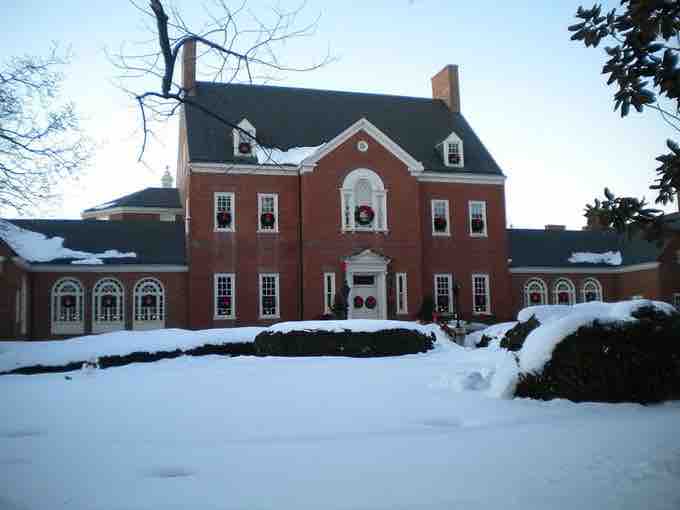Colonial Governors
In the British Empire, a governor was originally an official appointed by the British monarch or cabinet to oversee one of the colonies and be the head of the colonial administration. The governor was invested with general executive powers and authorized to call a locally elected assembly. In addition to advising the governor, the governor's council would sit as an upper house when the assembly was in session. The governor had the power of absolute veto and could prorogue (i.e., delay) and dissolve the assembly at any time. The governor lived in an official residence, known in most of the colonies simply as Government House.
A governor's power could diminish as the colony gained more representative government. This representation could come in the form of an Executive Council to help with the colony's administration or, in a further stage of self-government, Legislative Councils and Assemblies in which the governor often played a role. In some colonies, the colonial assembly shared power with a royally appointed governor. On a more local level, governmental power was vested in county courts, which were self-perpetuating—the incumbents filled any vacancies and there never were popular elections.
Colonial Assemblies
The colonial assemblies had a variety of titles, such as House of Delegates, House of Burgesses, or Assembly of Freemen. Assemblies were made up of representatives elected by the freeholders and planters (landowners) of the province. The assemblies usually met for a single, brief session, although the council or governor could and sometimes did call a special session.
The assembly's role was to make all local laws and ordinances, ensuring they were not inconsistent with the laws of England. In practice, this was not always achieved, because many of the provincial assemblies sought to expand their powers and limit those of the governor and crown. Laws could be examined by the Board of Trade, which also held veto power over legislation. The Board of Trade (originally known as the Lords of Trade or Lords of Trade and Plantations) was a committee of the Privy Council of the United Kingdom, first established as a temporary committee of inquiry in the 17th century that evolved gradually into a government department with a diverse range of functions. Taxes and government budgets also originated in the assembly, and the budget was connected with the raising and equipping of the militia.
The House of Burgesses was the first assembly of elected representatives of English colonists in North America. The House, which consisted of delegates elected by the colonists, was established by the Virginia Company, who created the body as part of an effort to encourage English craftsmen to settle in North America. The word burgess means an elected or appointed official of a municipality or the representative of a borough in the English House of Commons.
Tensions Between Governors and Assemblies
Conflicts over taxation and budgets contributed to the tensions between assemblies and governors that would eventually lead to the American Revolution. In 1769, the Virginia House of Burgesses asserted that only Virginia's governor and legislature could tax its citizens. The members drafted a formal letter to the King, completing it just before the legislature was dissolved by Virginia's royal governor.
As the Revolution drew near, colonial assemblies began forcibly ejecting their governors from office. Maryland was the only colony that did not forcibly eject its last proprietary governor from office, choosing instead a formal and largely courteous transfer of power. By 1775, the authority of its English governor, Sir Robert Eden, had been effectively usurped by the Annapolis Convention, and Eden was eventually asked by the Maryland Council of Safety to step down as governor. The Maryland Convention had been pressed by the Continental Congress (and the Virginians in particular) to arrest and detain Eden, but they demurred, preferring to avoid such an "extreme" measure. Eventually, the Maryland Convention formally asked the governor to leave, and Governor Eden finally departed Maryland for England on June 23, 1776.

Maryland Governor's Mansion
Government House is the official residence of the governor of Maryland and is located at State Circle in Annapolis, Maryland. It has been the home of the governor since 1870. It was designed by Baltimore architect R. Snowden Andrews (1830–1903). Jennings House was the residence of the governors of Maryland from 1777 until 1870.